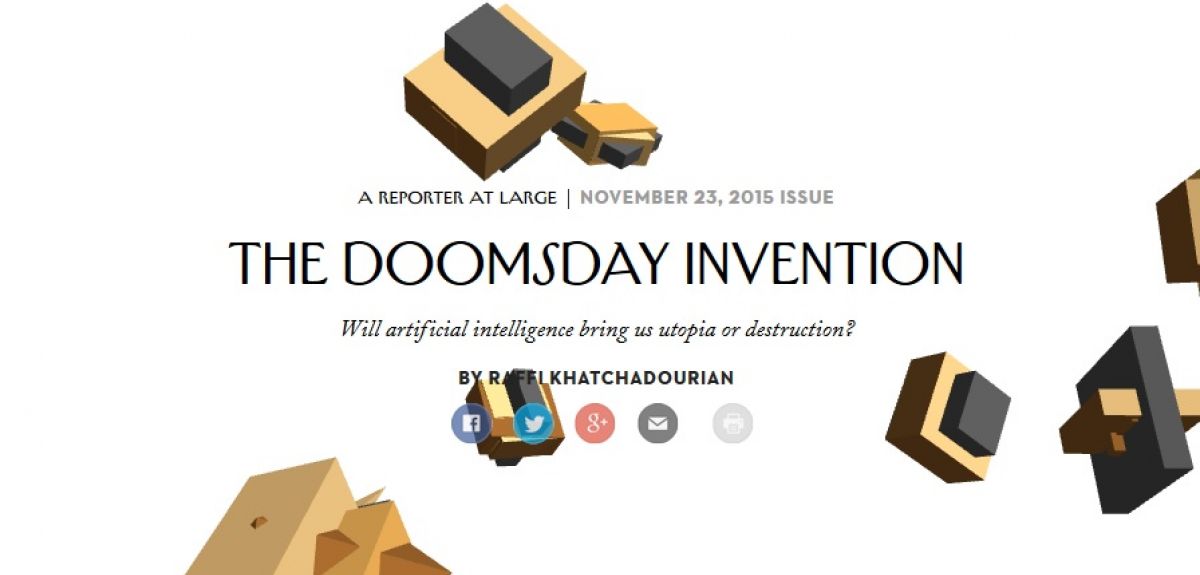
Spreading the word about 'existential threat'
Oxford's Future of Humanity Institute is a leading light in a relatively new and fast-growing area of research: the 'existential risks' that threaten the very existence of humanity in the future.
Its director, Oxford University philosopher Professor Nick Bostrom, is particularly concerned about the dangers of artificial intelligence: once machines become 'smarter' than humans, what impact will that have on us?
Understandably, spreading the word about existential threat is an important aim of the Institute.
So the last fortnight has been a good one: the legendary New Yorker magazine led its most recent issue with a 12,000-word article on Professor Bostrom, and he was named a Global Thinker by Foreign Policy magazine.
'It is good that some more attention is being given to these issues,' said Professor Bostrom. 'There is so much work that needs to be done.'
The Future of Humanity Institute, which was set up by the Oxford Martin School in 2005, is the world's largest research institute working on technical and policy responses to the long-term prospect of smarter-than-human artificial intelligence.
This week saw a further boost to the field, as the Leverhulme Trust gave a £10 million grant for a new research centre to explore the opportunities and challenges to humanity from the development of artificial intelligence.
The Leverhulme Centre for the Future of Intelligence is a collaboration between Oxford University, Cambridge University, Imperial College London and University of California Berkeley, involving the Future of Humanity Institute and its parent organisation the Oxford Martin School at Oxford University. The Centre will be physically located at Cambridge University.
Professor Bostrom said: 'We are thrilled about Leverhulme’s decision to support this fledgling field. The funding will enable us to significantly further scale up our own research and strengthen our international collaborations.'
Professor Ian Goldin, Director of the Oxford Martin School, said: 'The Oxford Martin School has been an early supporter of research into the potential long-term impacts of artificial intelligence, and we are pleased to see the field now growing rapidly and gaining international attention and funding.
'The new partnership supported by Leverhulme between the Oxford Martin School, Cambridge University and others will I believe make major strides in addressing a vital issue.'